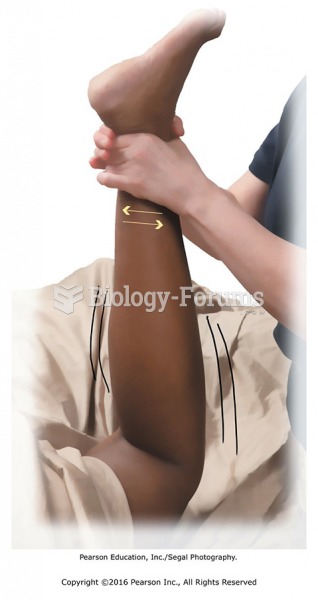|
|
|
The lipid bilayer is made of phospholipids. They are arranged in a double layer because one of their ends is attracted to water while the other is repelled by water.
Human neurons are so small that they require a microscope in order to be seen. However, some neurons can be up to 3 feet long, such as those that extend from the spinal cord to the toes.
It is believed that humans initially contracted crabs from gorillas about 3 million years ago from either sleeping in gorilla nests or eating the apes.
The Centers for Disease Control and Prevention (CDC) was originally known as the Communicable Disease Center, which was formed to fight malaria. It was originally headquartered in Atlanta, Georgia, since the Southern states faced the worst threat from malaria.
It is difficult to obtain enough calcium without consuming milk or other dairy foods.
 Pronation and Supination Pronation–Lying prone (face downward); also turning the palm downward. Supi
Pronation and Supination Pronation–Lying prone (face downward); also turning the palm downward. Supi
 Lie prone with your head turned to one side. Put your arms out to your sides and bend your elbows at ...
Lie prone with your head turned to one side. Put your arms out to your sides and bend your elbows at ...





